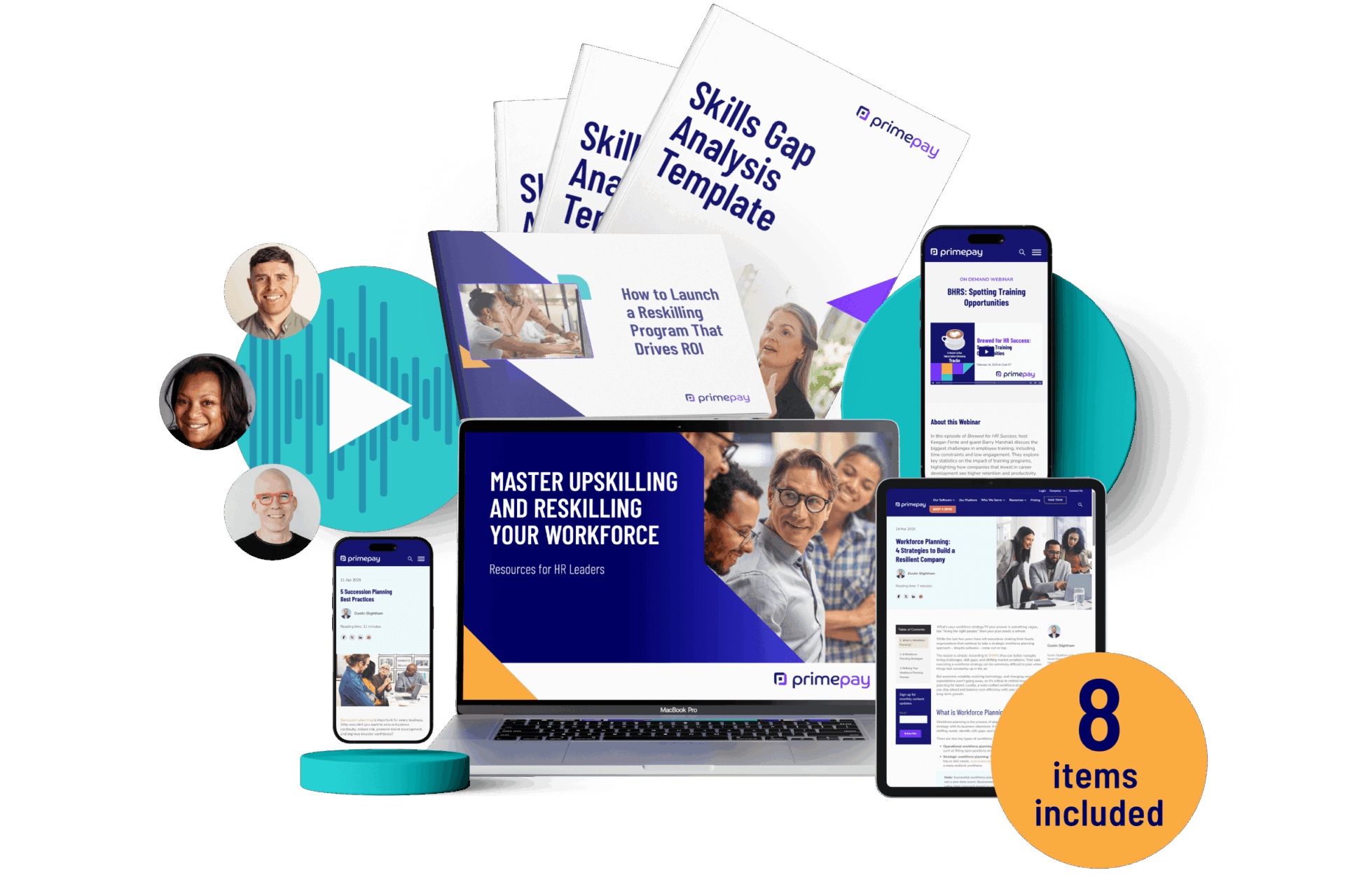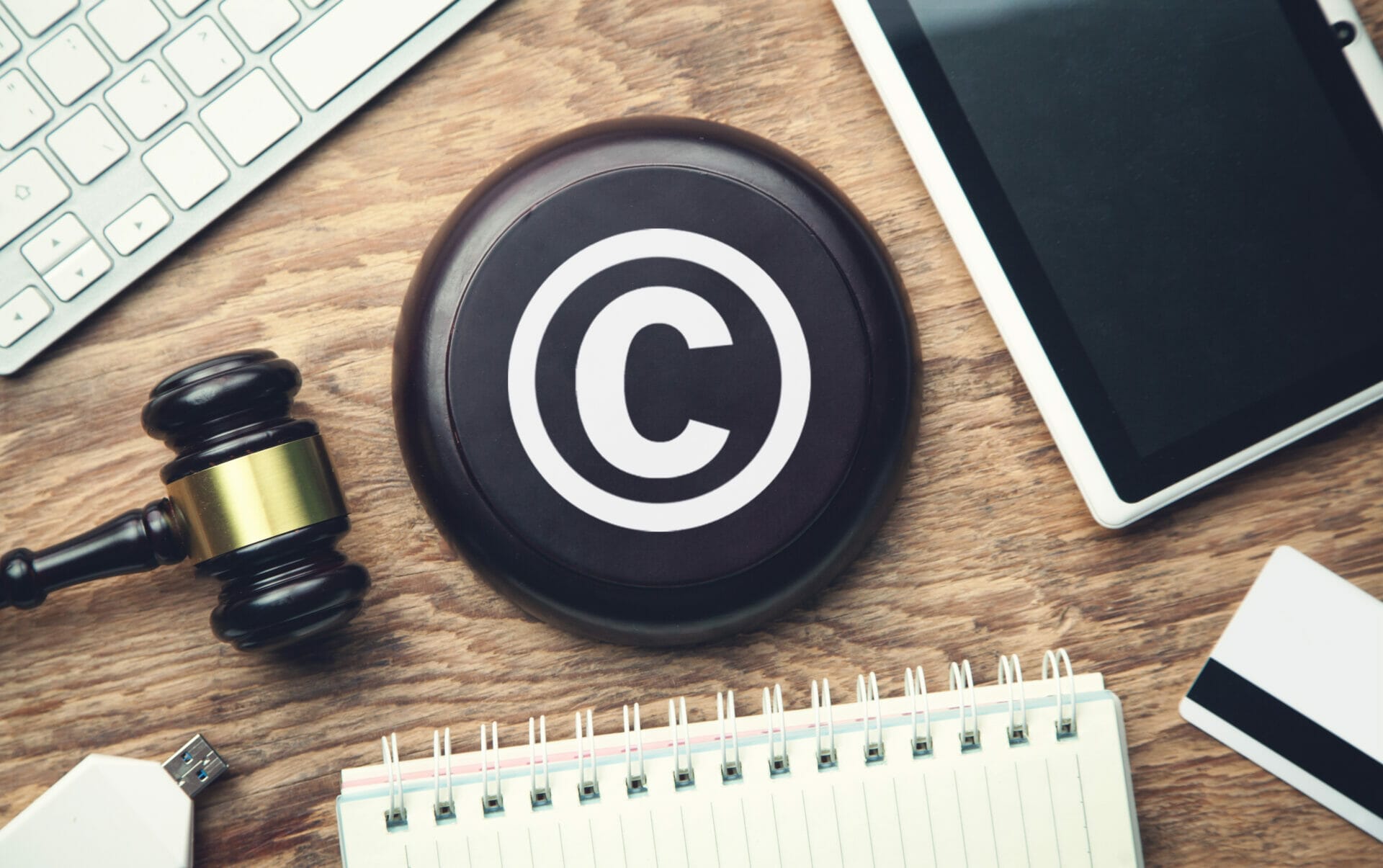Small business owners have a lot on their plates. Inundated with fulfilling orders, managing staff, running payroll, and whatever else the business world decides to throw your way – likely the last thing on your mind is copyright law.
Grab a photo from Google to throw on your website? Sure, why not? Copy and paste some information from another blog to your own? You don’t have time to write any original content, so yeah, that sounds good.
Not so fast.
Cutting corners is never a good idea. Violating copyright laws could land your company in a lot of trouble and a financial penalty you don’t want to have to deal with.
Like many compliance regulations, copyright law is extensive and complex. But I’ve answered seven common questions that cover the basics – from the copyright definition to copyright infringement and everything in between.
Copyright definition: Who and what does the copyright law protect?
The copyright law protects the artistic expression of the author or creator of an original work. The law automatically gives the author the exclusive right to copy, sell, distribute, display or perform the work and protects him or her from copyright infringement. It does not protect underlying ideas or concepts, just their artistic expression by an author.
What is an “original work”?
An “original work” means more than just written material in a book, play, poem or article. It also includes other forms of artistic expression such as photography, art, sculpture, architecture, music, films, sound recordings, as well as dramatic, dance, mime or other performances in recorded form. A note to IT folks: these written “original works” include computer code.
Are there exceptions?
Sure, not everything in written or recorded form is regarded as an “original work” entitled to copyright protection. Common exceptions include:
- Titles
- Names
- Slogans
- Short phrases
- Mere facts or common information
- Impromptu remarks or performances not in recorded form
- Government publications
- Original works in the public domain – 70 years after the author’s death.
What is copyright infringement?
Copyright infringement occurs when you copy, sell, distribute, display or perform a copyrighted work without the permission of the author or copyright holder. The law allows the copyright holder to collect actual damages or statutory damages that range from $750 to $30,000 per infringement, as the judge considers proper. If the infringement can be shown to be willful, the statutory damages may be increased to $150,000 per infringement.
What is plagiarism, and how does it differ?
Plagiarism is passing off someone else’s work as your own. It is dishonest and a form of stealing or cheating. Interestingly, this failure to attribute the work to the true author or owner is not itself illegal under the copyright law. The copyright violation is in the copying, display or distribution of the work. For certain, plagiarism looks bad – really bad – not only to a judge, but to the copyright owner who is more likely to come after you with a claim. Avoiding plagiarism is easy – that’s what quotation marks are for! If you identify the material or phrase in question and cite the author or owner, it’s not plagiarism.
Is it all right to copy material just because it’s on the internet?
No! The same rules apply as with any other form of publication or display. Most knowledgeable online publishers and bloggers include a copyright notice on their web page, usually at the bottom, ex., “© PrimePay, LLC.” This is just a notice of copyright ownership. Since 1989, legal copyright ownership in the US has accrued automatically, whether there is a notice or not. As a result, you can’t assume that you can copy something on the Internet just because it lacks a copyright notice.
When can I legally copy something?
There are three basic situations:
- The work is not protected by copyright law in the first place – see “exceptions” above.
- You get permission. This is often not hard at all. Many authors welcome additional distribution or publicity for their works so long as they are given the proper attribution.
- Your use is a “fair use” under the copyright law. “Fair use” is another copyright exception, based on four factors: (i) your purpose (commercial vs. education or research), (ii) the nature of the copyrighted work, (iii) the amount and substantiality of your use in relation to the copyrighted work as a whole; and (iv) the potential effect of your use on the market or value of the copyrighted work. Although there are thought to be some common sense “safe harbors,” such as using a miniscule piece of a work for purely educational purposes, relying on the fair use doctrine can be dangerous since it entails an individual, case-by-case factual analysis. It makes sense to contact legal counsel before relying on this exception.
Looking for ways to make your business more efficient?
PrimePay can partner with you to offer support throughout the entire employee lifecycle. Learn more about how PrimePay can help you streamline Payroll & Human Resources processes.
Please read our disclaimer here.






